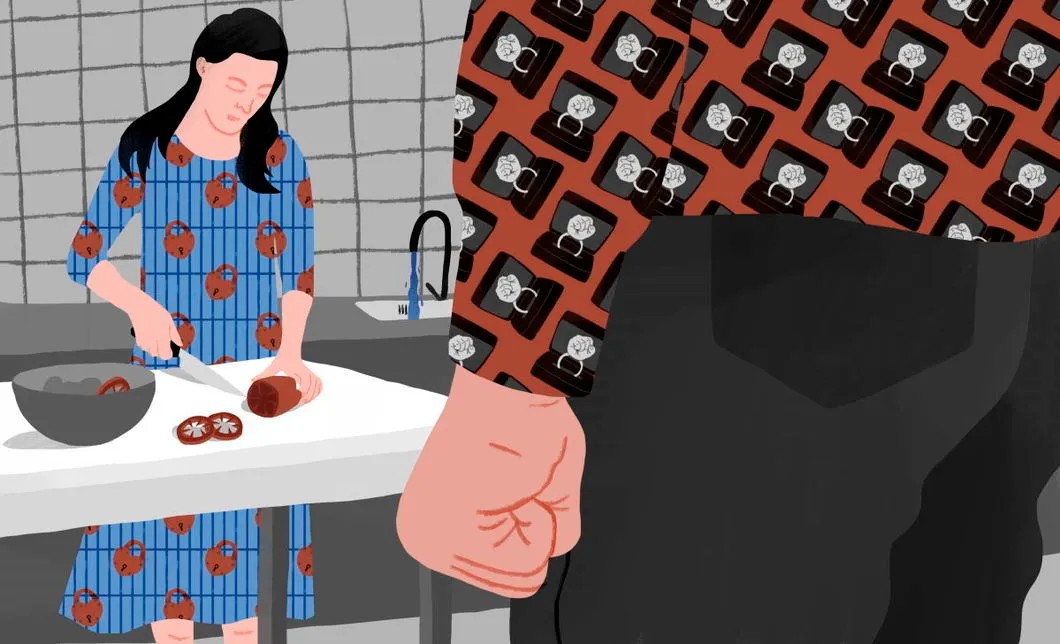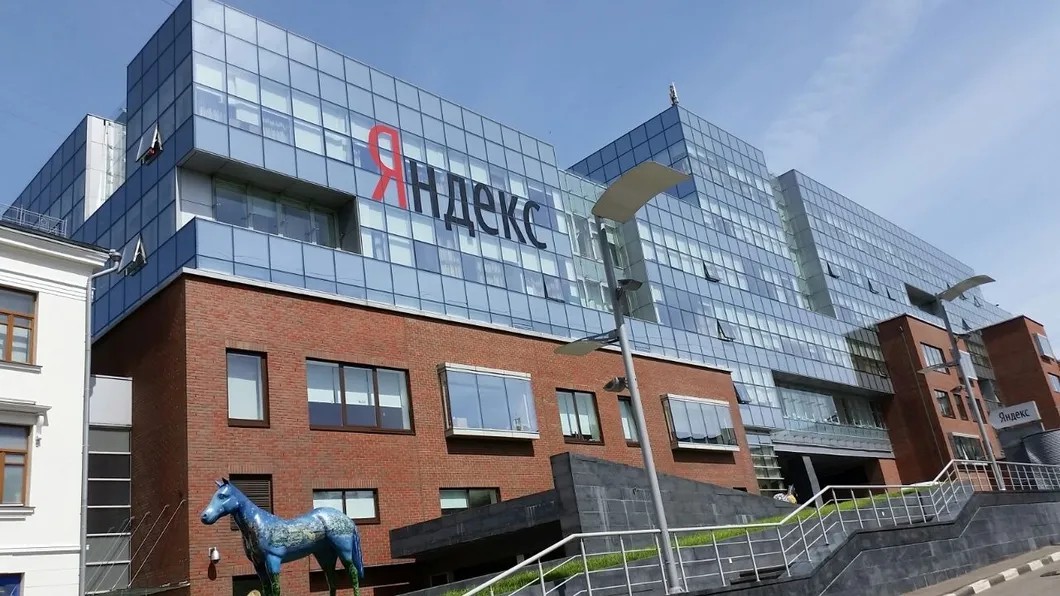
This Week’s Highlights
Novaya Gazeta journalists identify one of the private militiamen involved in a gruesome execution in Syria, an in-depth look at court decisions passed against women for murder exposes the enormous scale of Russia’s domestic violence problem, the Kremlin ramps up a takeover attempt targeting the country’s largest Internet services provider, the intensifying hunt for Chechen dissidents abroad and a joint investigation uncovers another global money laundering scheme linked to a powerful Russian businessman.
- Want to get the full story? Click the links below for full-length articles in Russian.
- New feature! Russia, Explained Audio Briefing. Also available on Apple Podcasts and Google Podcasts!
Russian Mercenary Identified in Graphic Execution Video
In a video of a brutal killing in Syria, Novaya Gazeta journalists identified a fighter from the Wagner Group, a Russian private military contractor associated with billionaire businessman and Kremlin “fixer” Yevgeny Prigozhin. A shortened version of the video, in which a man is beheaded, dismembered and then burned, first appeared online on the evening of June 30, 2017. It then took two years for a full version to surface, which helped Novaya Gazeta identify at least one of the executioners. The people who carried out the execution all had their faces covered, except for one man, who Novaya Gazeta journalists identified as an intelligence operative for the Wagner Group – Stanislav D.
Kremlin Response. The Russian President’s Press Secretary Dmitry Peskov reacted to Novaya Gazeta’s report, calling the video footage our newspaper published “shocking” and insisting that the Kremlin has “no information” and no connection to the people involved. Peskov noted that the incident has nothing to do with Russia’s military mission in Syria, however he was also unable to answer the question of whether or not the President considers it necessary to investigate what happened. Peskov’s reaction came as a surprise, since the Kremlin almost never responds to journalistic investigations.
Publishing. The execution video shocked the country and provoked a widespread conversation – not only about the war crimes it exposed but also about the ethics of publishing extremely graphic footage. When asked about making the decision to publish, Novaya Gazeta investigative correspondent Denis Korotkov says that “the editors of Novaya Gazeta found a precise and appropriate balance between what can and should be shown.” “This wasn’t the full frames, but a redacted and retouched version,” Korotkov explains. “I am convinced that these videos should be shown appropriately and professionally, because this is not [about] relishing scenes of violence, nor is it an appeal to low-lying human feelings – it’s the opposite. When we talk about crimes against humanity, it is necessary to remind and demonstrate that this is in fact happening here, now and with us.”
Backstory.The Wagner Group is a Russian private military company operating in countries like Syria and the Central African Republic. The company is associated with businessman Yevgeny Prigozhin, who is known for his links to the Russian President and is often called “Putin’s chef” because of the chain of restaurants he owned in the Kremlin. Prigozhin is leading Putin’s expansion in Africa, and is under sanctions from the United States for his affiliation with the so-called Internet Research Agency, aka the St. Petersburg “troll factory” – a company engaged in disruptive commenting and influence campaigns on social networks. Sources believe that Prigozhin’s people could be involved in attacks on activists, as well as the murder of three Russian journalists in the Central African Republic in July 2018. In addition to Russian private military groups operating in Syria, the Russian Armed Forces have had direct military involvement there since September 2015. Russia has also been supporting the Assad government politically and with military aid since the Syrian Civil War began in 2011.
Read Novaya Gazeta’s full report identifying one of the Wagner Group mercenaries behind this gruesome execution in Syria here.
Russia’s Authorities Call Domestic Violence Problem “Exaggerated”
The majority of women in Russia convicted of murder were protecting themselves from domestic violence, says a new investigation from Novaya Gazeta and its partner outlet Mediazona. Meanwhile, the Russian authorities are convinced that the country’s domestic violence problem is “significantly exaggerated” – or so says the Deputy Minister of Justice Mikhail Galperin.

Investigation.Novaya Gazeta’s analysis of court decisions passed against women for murder demonstrates the enormous scale of the domestic violence problem in Russia, where the courts and law enforcement agencies tend to side with the agressor. Meanwhile, Mediazona’s team found that the majority of the women convicted of premeditated murder were actually defending themselves. Nevertheless, they were given harsh sentences of up to 15 years imprisonment under the criminal code. Women convicted of homicide caused by actions in excess of self-defence were given a lighter sentence – up to two years in prison. But in this case these women often go to jail simply because they cannot fight back with their bare hands and 91 percent of women convicted for “exceeding self-defense” were defending themselves from their partners or other male relatives.
Backstory.Russia’s Supreme Court decriminalized domestic violence in 2017 and the authorities are consistently hesitant to intervene in so-called family matters. Meanwhile, domestic violence affects a quarter of families in Russia, where an estimated 14 thousand women are killed by their husbands or relatives every year, the United Nations reports.
Read the full investigation into how Russian courts are handling cases involving victims of domestic violence here.
Yandex’s Compromise, Explained
The board of directors of Russia’s largest Internet services provider, Yandex, has approved changes to the company’s management structure. Now, it will include a new state-connected Public Interest Fund based in the Russian offshore zone of Kaliningrad, which will have veto power and the final say on deals regarding individual shares larger than 10 percent of the company. Its members will also nominate two of the twelve directors on the Yandex board. The decision to restructure comes after a long negotiation process with the Russian government, which has been trying to take control of the Internet giant ahead of the 2021 State Duma elections.
Поддержите
нашу работу!
Нажимая кнопку «Стать соучастником»,
я принимаю условия и подтверждаю свое гражданство РФ
Если у вас есть вопросы, пишите [email protected] или звоните:
+7 (929) 612-03-68

Backstory.The Russian authorities have been regularly attacking Yandex over the course of the past year, primarily through a proposed bill that would restrict foreign shares and capital in Russia’s Internet companies. In October, the company’s shares fell 20 percent amid discussion over the bill in the State Duma – marking the third time that the Russian authorities’ actions brought down the value of the country’s foremost tech company this year. What’s more, a special restructuring committee – which included Kremlin associates like the former head of the presidential administration, Aleksandr Voloshin, among others – has been entertaining a number of “soft nationalization” scenarios for the company, but in the end, changing the company’s management structure seemed like a more elegant solution.
Experts Weigh In.Novaya Gazeta spoke to a pool of experts whose opinions on the changes at Yandex were divided. While some see the committee as a good compromise that will demotivate the state from further takeover, others fear that Yandex is still under threat. They see the Public Interest Fund as an attempt to show loyalty to the state, which is just delaying the inevitable government takeover.
Novaya Gazeta asked experts about who is now in control of Yandex and whether the battle for the Runet’s top company is truly over. Read their responses here.
How Chechnya Hunts Down its “Defectors”
The leadership of Russia’s most repressive region, Chechnya, are recruiting members of the diaspora to hunt down dissidents abroad. This became apparent in early November, when Chechen officials gathered over 500 members of the diaspora in Moscow. The main leitmotif of the event was a call to identify Chechens all over the world who do not want to follow the so-called “path of Akhmat Kadyrov” and who lead a lifestyle that supposedly “disgraces the Chechen people.”
Diaspora Politics.Chechen officials hold meetings with the diaspora in Moscow twice a year, but this is the first time that calls have been made to identify and convey information about Chechens who are allegedly “behaving inappropriately” abroad to the Republic’s leadership. The calls targeted the American and, quite explicitly, the Canadian diaspora in particular. Canada came onto the Chechen leadership’s radar in 2017, when the country took in 50 victims of Chechnya’s LGBTQ purges. Members of Chechnya’s queer community who found asylum in Canada have taken the leadership’s call as an unequivocal threat of danger and plan to seek additional security measures from the Canadian authorities.
Backstory.In addition to ordering assassinations in Europe, the Chechen authorities have been known to use Interpol arrest warrants to go after dissidents abroad. Despite presiding over a small region of Russia with just one million people, their abuse of this international law-enforcement system is so widespread that the number of Interpol arrest warrants for Chechens tops Russian and Chinese requests combined. Chechnya’s leaders also pay particular attention to the Middle East, which they consider not only one of the last international destinations available to them (since Europe and the United States have included the Head of the Chechen Republic Ramzan Kadyrov and members of his inner-circle on their sanctions lists), but also as part of their sphere in terms of influence and business interests, and a possible “escape route.”
Read more about Chechnya’s menacing diaspora politics here.
Russia’s New Massive Money Laundering Exposé, Explained
A joint investigation from Novaya Gazeta and its international partners has uncovered an internal report from the Estonian branch of Sweden’s largest bank (Swedbank) that reveals an offshore network belonging to Russian businessman and former minister Mikhail Abyzov – who is currently under arrest. The network includes 70 companies from Belize, Singapore, Cyprus and the British Virgin Islands, that received $860 million between 2011 and 2016. The bank manager who was supposed to ensure the “cleanliness” of these transactions allegedly helped transfer money between the offshore companies. These new details may complicate the already difficult situation facing the Estonian branch of Swedbank, which is at the center of scandal due to allegations of Russian clients laundering money and facing ongoing investigations in Estonia and Sweden.
Key Findings.The joint investigation found that at least 38 of the 70 offshore companies listed in the Swedbank report previously owned or continue to own large assets in the Russian electric power industry, bridge and machine building, coal mining and agro-business. What’s more, part of the sale of these Russian assets took place when Mikhail Abyzov was a government minister and did not have the right to engage in entrepreneurial activity. Nevertheless, from 2012 to 2018, Abyzov’s offshore companies participated in complex transactions in Russia, including the purchase of shares in the country’s largest machine building company, ELSIB.

Criminal Charges.Mikhail Abyzov was arrested in March 2019 and is so far facing four different criminal charges. He was initially accused of creating a criminal group that stole four billion roubles (over $62.5 million dollars) from major companies in Russia’s electric power industry. Abyzov was later given additional charges for receiving 32 billion roubles (more than $500 million dollars) from illegal businesses and laundering these funds. Meanwhile, he is denying all the charges against him, saying that the criminal cases are a pretense for seizing his property and that the charges are aimed at pressuring him to incriminate himself and other people.
Backstory. Russia is the largest money laundering client for participating western banks and has been exposed for carrying out large scale money laundering operations in nearby countries like Moldova and Azerbaijan. Laundering money through shady banks in the Baltic countries has also become a popular sport in Eastern Europe, which has nearly crushed the Latvian banking system and done quite a bit of damage in Estonia as well.
Read the joint investigation into Swedbank’s Estonian scandal in Russian here and in English here.
Thanks for reading! To keep up with Novaya Gazeta’s reporting throughout the week, you can follow us on Facebook, Twitter, Instagram and Telegram. Our video content is available on Youtube and don’t forget to visit our website for the latest stories in Russian. Until next time!
— The Novaya Gazeta Newsletter Team
Поддержите
нашу работу!
Нажимая кнопку «Стать соучастником»,
я принимаю условия и подтверждаю свое гражданство РФ
Если у вас есть вопросы, пишите [email protected] или звоните:
+7 (929) 612-03-68